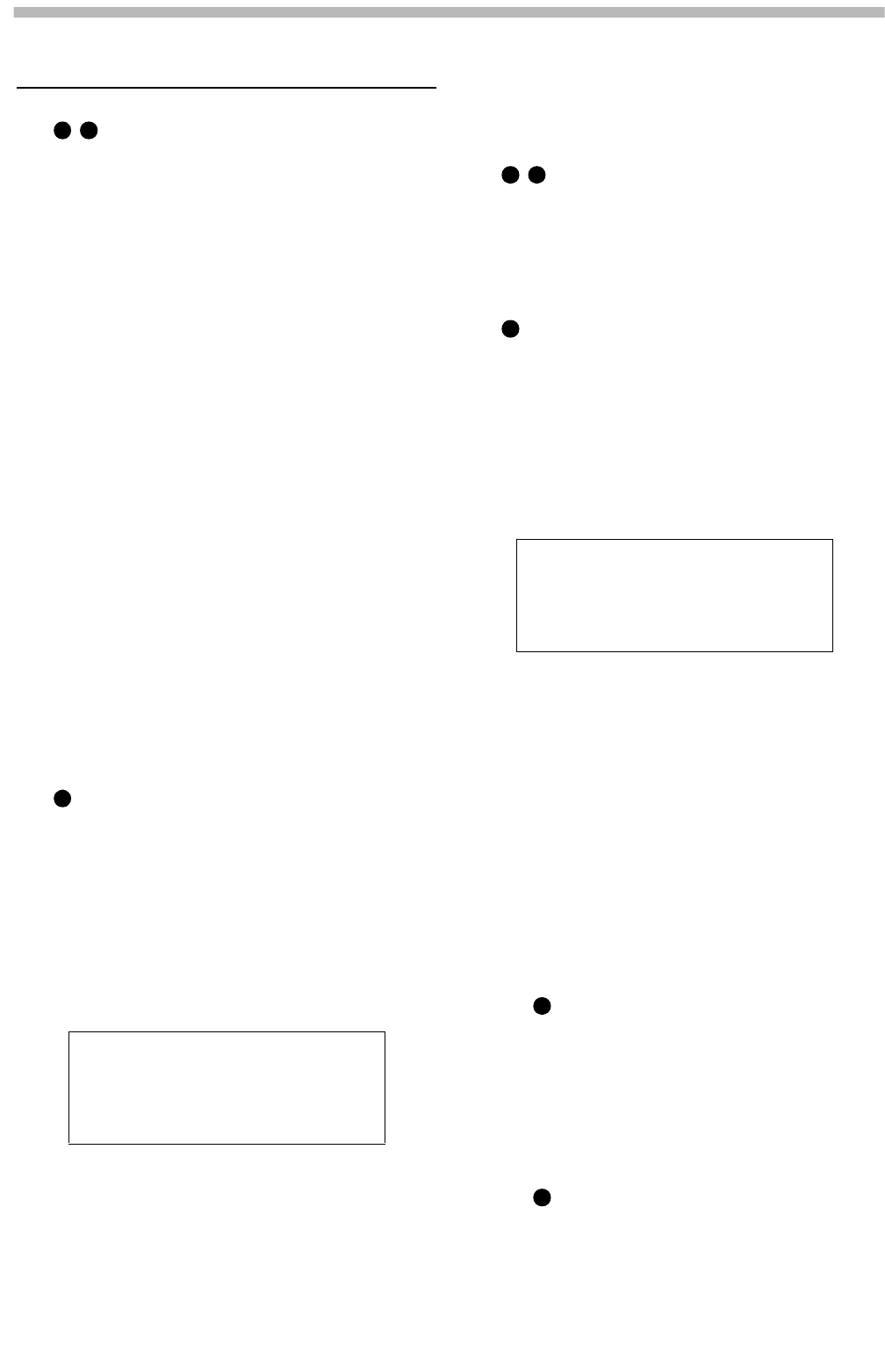
Section 8.1 - Primary timecode functions
8-1
8 – Timecode functions
This section describes the timecode-based
functions available through the RC-898. Note that
while the RC-898 contains no timecode generator
or reader of its own, it is able to control the time-
code generators and synchronization facilities of
DA-98 and DA-88/SY-88 units. Since the DA-38
does not have any timecode facilities, this section
does not have any relevance if you are using a
setup composed of only DA-38 units.
Note that in this section, we use the term “time-
code” to refer to SMPTE/EBU timecode rather
than to ABS timecode.
When using a chain of DTRS units which are to
be synchronized to external timecode, you will
usually need to synchronize the first unit in the
chain. The other units should then chase to the
first, using the DTRSABS synchronization facil-
ity. For information related to this and to other
non-timecode-related synchronization features,
see 9, “External control and settings”.
8.1 Primary timecode
functions
These functions cover the basic timecode setup
when synchronizing DTRS units to timecode.
8.1.1 Selecting the timecode source
When using a DA-98 unit, the timecode used
for recording can be from one of three different
sources: external, from the internal generator, or
off-tape (“synthesized” timecode—see 8.1.2,
“Synthesizing timecode from ABS times”). See
section 10.5 of the DA-98 manual for further
details regarding this function.
1) From menu group 8, move the cursor to
TcRec Src and press
SELECT
:
2) Use the
UP
and
DOWN
keys to select between
External TC, Generator TC and
Tape.
If you select
Tape
, there will be another param-
eter shown which will correspond to the timecode
type selected in 6.4, “ABS setting”. This shows the
kind of timecode on the tape: striped timecode or
synthesized timecode (as described in 8.1.2, “Syn-
thesizing timecode from ABS times” below).
8.1.2 Synthesizing timecode from ABS
times
As mentioned earlier, linear timecode
does not necessarily have to be striped on a tape
for the DTRS unit to be able to use the TC setting.
The subcode can be used to synthesize timecode,
eliminating the need to pre-stripe the tape for
timecode-based work.
In addition, the DA-98 can add offsets to the
ABS value, so that the timecode values can start at
any desired position, or can create a repeating
timecode pattern for tracks of nominal 10 or 20
minutes’ duration. See also 10.2.3 and 10.2.4 of
the DA-98 manual for further details.
1) From menu group 5, move the cursor to
Tape TC, and press
SELECT
:
2) Use the
SHIFT
ed
UP
and
DOWN
keys (
NEXT
and
PREVIOUS
) to select the DTRS unit whose
values you will change.
3) Use the
UP
and
DOWN
keys to choose between
the following:
•
TC Track: The timecode is read from the
timecode track striped on the tape. Full details
of these operations are given in 8.1.7, “Record-
ing the timecode on a DTRS timecode track”..
•
ABS: The timecode is “synthesized” from the
ABS time (i.e. the ABS values are read and
used as timecode).
•
ABS-Ofs: You can add or subtract an
offset from the ABS values to arrive at the final
synthesized timecode value. If you select
ABS-Ofs, use the numeric keypad [16] to
enter an offset value on the
LOCATE TIME/
VALUE
display [15] and enter it into the offset
value on the display screen using the
SHIFT
and
ENTER/LOAD
keys [23]+[20].
•
ABS-13 and ABS-23: provide a con-
venient way of dividing a tape into “sessions”.
Timecode is synthesized with a pre-roll time of
xx:57:00:00
, the session is assumed to
start at
xx:00:00:00
, and finishes at
xx:10:00:00
or
xx:20:00:00
, depend-
TC Record Source
Machine 1
External TC
98 88
98
Tape TC Mode
Machine 1
Mode
ABS
98 88
98
98
98
